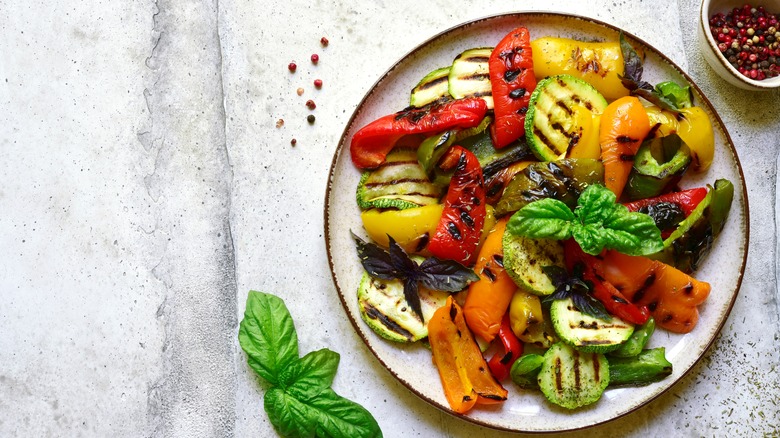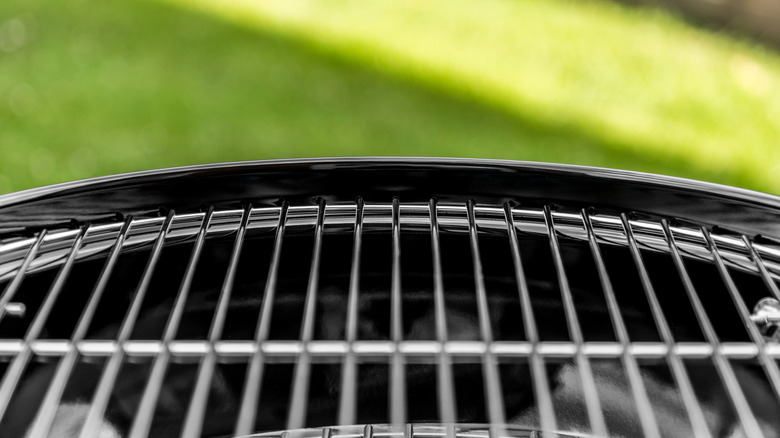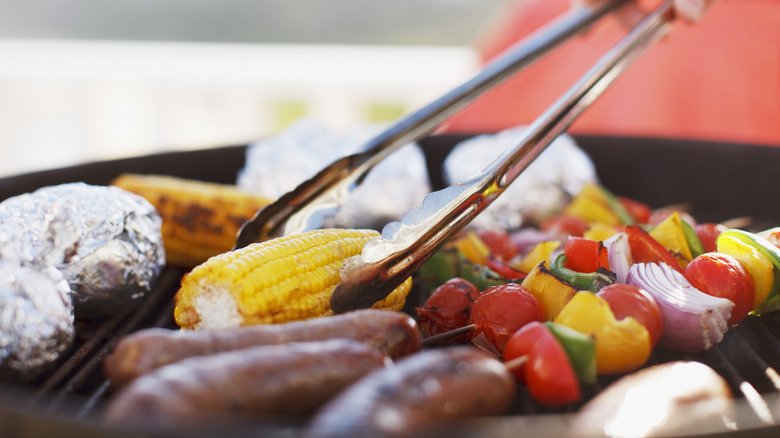The Grill Grate Hack To Get The Most Out Of Grilled Vegetables
Whether you're grilling them up alone or serving them with steak, grilled vegetables are a delicious option to add to your grilling roster. While grilled meats often take center stage when firing up the grill, there's no reason you should be avoiding grilled vegetables. They're easy to prepare; taste fantastic; and, with the right tools and some simple know-how, they might even outshine the other options.
Like anything else you would cook on the grill, one of the worst-case scenarios for vegetables is that they stick and burn onto your grill grates. Luckily, to avoid this all you need to do is grease your grill before adding your vegetables. This will help them pull away easily when it's time to flip and allow you to avoid flare-ups from oil dripping off the vegetables themselves. The seasoning process should be done with all newly purchased grills, but it can also help to add a dab more oil just before cooking to ensure that things go smoothly.
How to oil your grill grates for vegetables
Before you add oil to your grates and start any cooking, you should clean your grill. This prevents any stuck-on food from burning, smoking, and ruining the flavor of what you're cooking. It also makes a clean surface for the oil to adhere to.
Once your grill has been well scrubbed, select an oil with a nice high smoking point. Peanut oil, corn oil, and refined coconut oil all have a solid smoking point of 450 degrees Fahrenheit. That means it will take a lot of heat for them to start smoking and turning rancid so they're better for this style of direct heat cooking. Add this oil to an already hot grill by coating a paper towel with your chosen oil and using your tongs to wipe down the grates.
If you want to add more flavor, you can also swap out that neutral oil for a few other options. If you can get your hands on a solid piece of pork fatback, you can keep it in your freezer and rub it over the grates before you're ready to cook. This will make your meal less vegetarian-friendly but it will also add lots of fatty flavor to whatever you grill. You can also use a couple of pieces of bacon to render their fat or use a woodchip or onion dipped in oil to leave a non-stick surface with a little more flavor behind.
Best vegetables for grilling
Grilling is a great way to take advantage of the bounty of summer by grilling up your garden's bounty. There are plenty of other great options out there to choose from though. Asparagus is an easy option because it's hardy enough to handle the heat; and, when placed correctly, won't fall through the grates, either. Other hardy vegetables like artichokes and portobello mushrooms also handle time on the grill well and pair excellently with rich meats.
Just remember that cooking vegetables with harder surfaces like potatoes might require some pre-cooking. A quick stop in the microwave will help start the cooking process so that the exterior is golden brown and crisp just as the interior finishes cooking.
Don't forget to include sweeter options like carrots and beets as well. Not only will they add vibrant colors to your barbecue spread, but those sugars will caramelize on the grill and create a wonderfully complex mix of sweet and savory.


